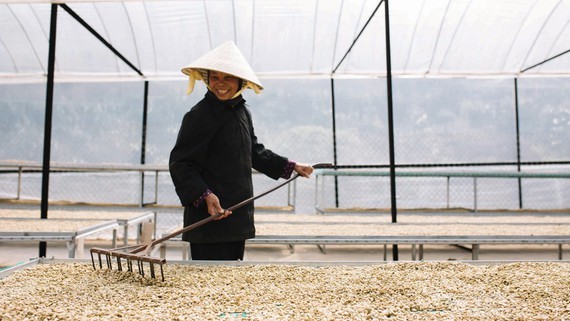
According to the Ministry of Agriculture and Rural Development, total agricultural imports in 2018 of South Korea was US$35.2 billion, of which, Vietnamese agro-foresty-aquatic products merely accounted for nearly 6 percent. Bilateral trade between Vietnam and South Korea from 1992 to 2018 was 132 times higher, from $500 million to more than $66 billion, and is aiming for $100 billion in 2020. However, Vietnam has always seen trade deficit as the country had trade deficit of nearly $32 billion from South Korea last year; in the first half of this year, Vietnam exported $9.1 billion to South Korea and imported $22.5 billion, trade deficit of more than $13 billion.
Korean people favor agricultural and aquatic products of Vietnam. It is the condition to promote export of agricultural products to South Korea in order to reduce trade deficit. After the Vietnam-Korea Free Trade Agreement was signed, several agricultural products have received tariff reduction, such as seafood and agro-forestry products and market has been opened for garlic, ginger, honey and sweet potato. Besides five kinds of fruits, consisting of coconut, pineapple, banana, mango and dragon fruit that are allowed to import by South Korea, Vietnam need to promote export of potential products, including coffee, chili, garlic, rice, shrimp, frozen fish, cabbage, German turnip and tomato.
Why do the volume of Vietnamese farm produce imported into South Korea remain at modest level? Mr. Hong Sun, vice chairman of the Association of South Korean Enterprises in Vietnam, said that it is difficult for South Korean enterprises to look for Vietnamese partners who have the capacity to produce products that meet standards set by importers.
Especially, quality and price are the main issues. The volume of Vietnamese products imported into South Korea is not high as their prices fail to compete with those of other countries, including the Philippines, Thailand, Indonesia and Mexico. According to Mr. Hong Sun, Vietnamese Government should give support in building brand names for agricultural products.
As one of the enterprises which are investing in raw material areas in Vietnam to export to South Korea, Mr Son Sung Hoon, CEO of CJ Vietnam, said that enterprises need to build stable sources of raw material with quality meeting standards of South Korea at first as if initial raw materials fail to meet standards, finished products will not be able to be exported. In order to do that, enterprises must constantly cooperate with farmers to timely tackle weakness in technique, quality as well as production. In addition, two government must both adjust tariffs so as to increase competitive edge against other countries.
In Vietnam, raw material areas currently are fragmented. The Government need to have more policies to build large-scale raw material areas in order to ensure material sources, creating an agriculture that meets standards for export. With such farming method, the cost prices of Vietnamese products might be able to compete with other countries. Especially, enterprises should improve capacity and awareness in understanding regulations of the market and supervise every stage in the whole production chain.
In order to increase export turnover, deputy minister Tran Thanh Nam of the Ministry of Agriculture and Rural Development said that it is necessary to establish regular market information channel for enterprises and head to establish the association of Vietnam-South Korea agricultural enterprises in order to build raw material areas that qualify export standards. The Agricultural Products Processing and Market Development Department will collaborate with the Association of Korean Enterprises in Vietnam to organize training courses, increase trade promotion, build raw material areas and establish cooperation mechanism between authorities, enterprises and farmers to ensure the entire supply chain. At the same time, quality control agencies should always update and popularize regulations of South Korea on food safety control and guide farmers to build safe foundation in accordance with regulations of Vietnam and South Korea.
On average, Korean people consume 200 kilogram of vegetables per person per year and 60 kilogram of fruits per person per year. Mr. Le Thanh Hoa, deputy head of the Agricultural Products Processing and Market Development Department, said that there is still room for agricultural exports of Vietnam. In 2018 alone, South Korea imported 8,446 tons of vegetables and fruits but only 304 tons of vegetables and fruits were from Vietnam; 5,045 tons of seafood but only 647 tons of seafood were from Vietnam; and 3,825 tons of forestry products but 795 tons were from Vietnam.
























